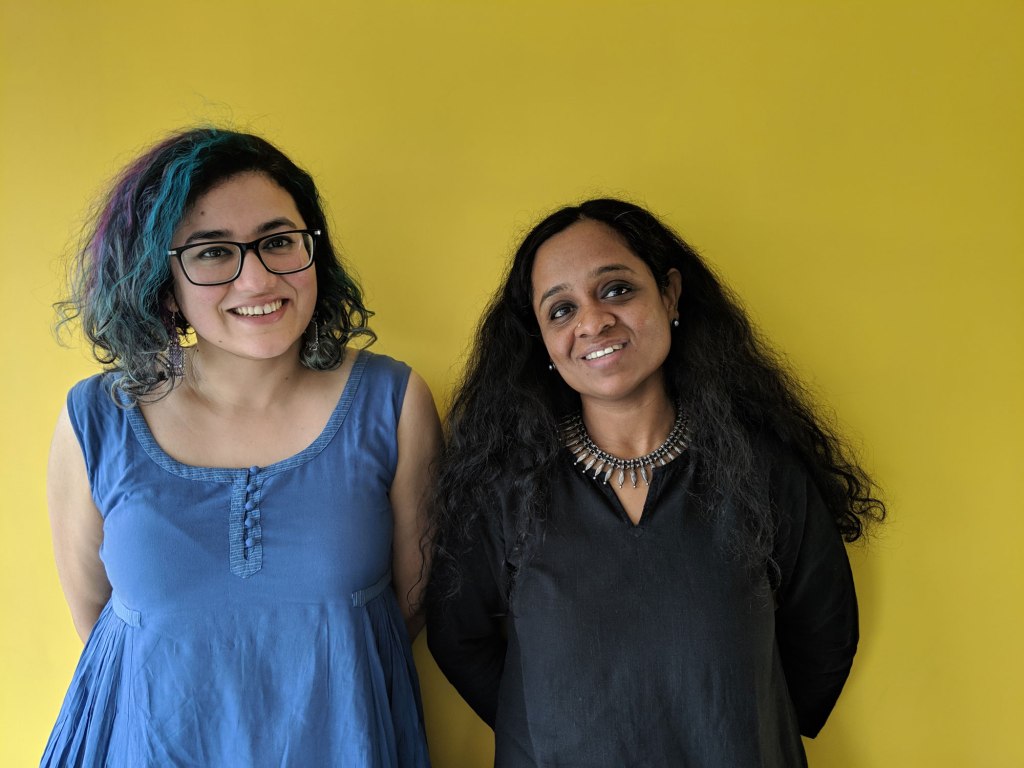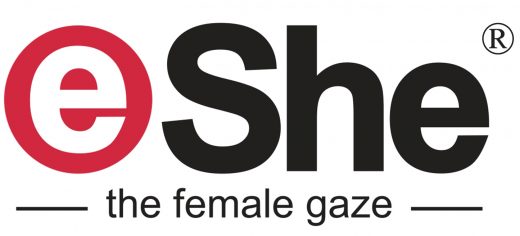By Neha Kirpal
Before doctoral scholar Preeti Das and entrepreneur Shefali Pandey met, Preeti had already been doing standup comedy for six years. She was annoyed that for every male problem there was a corresponding joke but women’s problems didn’t get the same attention.
And, as someone who follows comedy in both the US and India, Shefali felt there were at least some female comedy voices in the West – even it was just “women being women, bitching about their dates, their boyfriends” – the “funny women” scene was really missing in India around 2017.
“We wanted to just put our word out there and make people laugh on our topics – whether it was porn, masturbation, pregnancy, motherhood, sanitary napkins or mammograms,” says Shefali. Thus, the comedy collective Mahila Manch was born in their hometown Ahmedabad.
They began by hosting a monthly event humorously titled ‘The Period Show’. For the first show, one of the guest speakers was a transwoman who joked about her experiences at security checks and how she got pulled into the men’s lines all the time.

Since then, they have covered various controversial subjects such as LGBTQ, rape, #MeToo, female sexuality and body shaming, which often gets them into trouble. “Similar things have been done before by several male comedians, but they don’t get a similar backlash from ‘well-meaning’ middle-aged uncles. But because we are women, we often get the comment about this being a family show,” explains Shefali, 35, who lived in New York and Mumbai before she moved to Ahmedabad where she runs a digital agency.
One of the most memorable reactions they have got to their political and personal views was in January 2020 at the Mathrubhumi International Festival of Letters in Kerala.
Preeti and Shefali had gone along with fellow comedian, Wasim. While Wasim talked a lot about his Muslim identity in Ahmedabad, 39-year-old Preeti talked about being a journalist and being a Bengali in Ahmedabad, and Shefali talked about politics because her family is a big supporter of the current government, while she is not.
The reaction they got from the audiences there was brilliant, they say. About 200 people attended their shows, comprising mostly authors and litterateurs who cheered almost everything they talked about – identity, gender, caste. Post the show, they were treated like stars, they laugh.

Shefali feels that women standup comedians in India like herself are pushing the boundaries and finally making their voices heard. “When you see someone with an open mind getting on stage or the big screen and talking about things – owning their feelings, their bodies, their sexuality and their lives – it definitely encourages others,” she says.
Comedy used to be a boys’ club earlier, but the stereotype that women are not as funny as men is slowly changing. “A woman had to be either fat or a mimic (think Tuntun!) to be a comedian. Thankfully, we no longer have to rely on our physicality or how we appear in order to be funny. We can also be comics because of our intellect, wit and ability to control minds with our words,” she adds.
Shefali has a problem with the portrayal of empowered women in pop culture: their strength is described with labels such as “activist,” “career woman” or even “bitchy”.
“A girl or a woman should be seen as a whole, without having to be an Alpha type or a housewife, just like men are allowed to be themselves. There can’t be just two or three stereotypes for women,” she says.
Needless to say, the group finds its inspiration in laughter. “Being on stage is power, with everyone focused on you. The 150 or 200 people in the audience are there to listen to you,” she adds.
“Of the 10 times you get on stage, twice you bomb. But the eight times that the audience is with you, it is difficult to replicate. It’s a high that pulls you back again and again,” she says.

They admit they also go on stage to speak their truth. “If I was telling my truth in any other way apart from comedy, I don’t think I would get through to as many people as effectively. You get away with saying what you want to say while also making people laugh. In that sense, people are more receptive to what you have to say, and it stays with them longer,” she explains. Further, the group is driven by the excitement to see what will work or not whenever they write something new.
The going is not always easy. Shefali recalls that once in a Karol Bagh street in Delhi, she was asked to get off the stage by a bouncer, because one of her jokes was a satire on the current government. “I’ve become more careful now, so I don’t do political jokes when not close to home,” she says.
While there have been stray incidents of criticism and even harassment, they have not been heckled while on stage. By and large, people have been supportive at least in Ahmedabad, where most of the audience comprises their friends and friends of friends.
Finally, Mahila Manch believes that comedy makes one more open as a society in a way that merely speaking or writing one’s opinion cannot. “You start with a joke, do another joke, slip in a message somewhere in between, and again end with a joke,” says Shefali of their tried-and-tested formula.
The group also feels that comedy has a lot of scope for influencing minds. “Several comedians are now calling truth to power through the medium of comedy – it’s charging up people and aligning them with the cause,” she concludes.
First published in eShe’s April 2020 issue
Syndicated to MoneyControl


0 comments on “These Ahmedabad Standup Comics Are Raising the Bar for Girl Jokes”